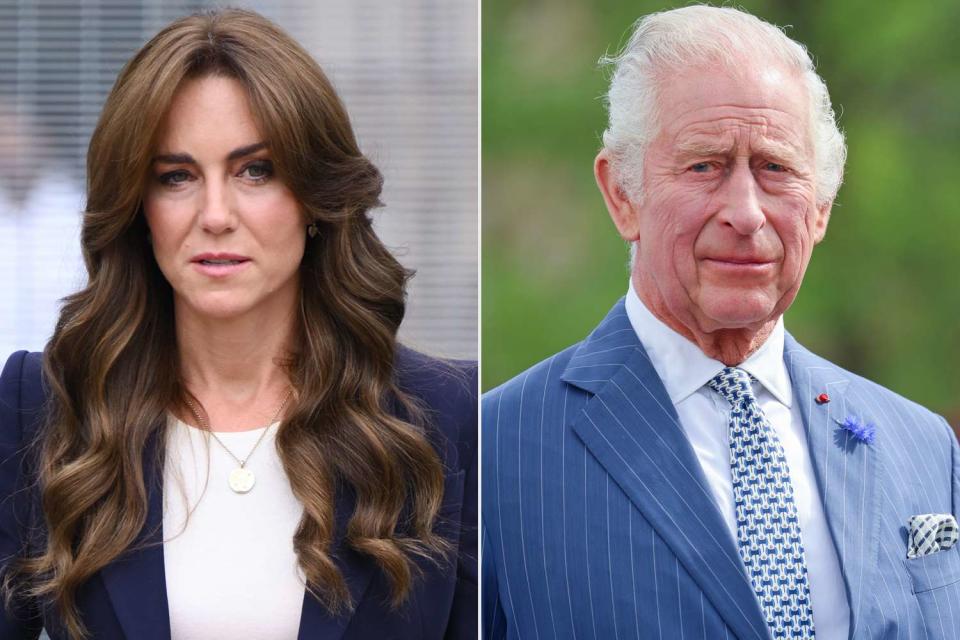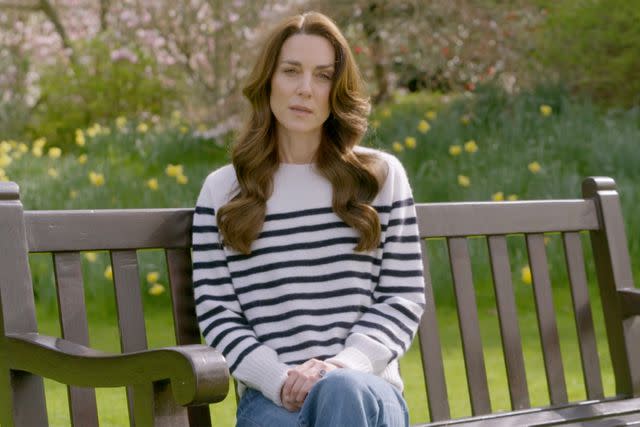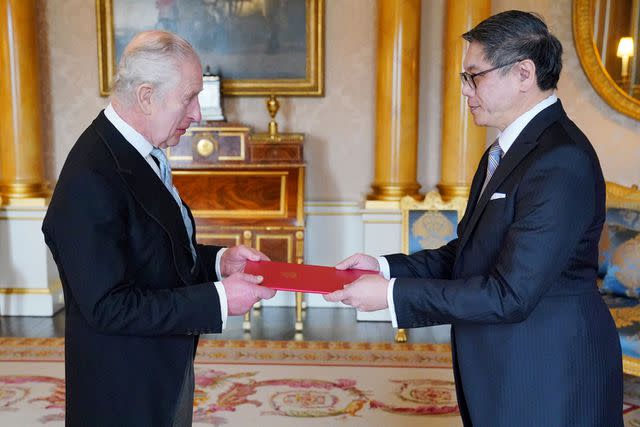Kate Middleton and King Charles Are Both Undergoing Cancer Treatment. Is It Safe for Them to Greet the Public?
- Oops!Something went wrong.Please try again later.
An expert shares how recovering from chemotherapy can impact a person for up to a year after completing treatment

Karwai Tang/WireImage, Pool/Samir Hussein/WireImage
Kate Middleton and King CharlesKate Middleton and King Charles have announced they're undergoing cancer treatment, with the Princess of Wales sharing that she's started "preventative chemotherapy"
When you're undergoing chemotherapy, you have "higher rates of infection" due to a diminished immune system, Dr. Julie Gralow, Chief Medical Officer at the American Society of Clinical Oncology, who did not treat the royals, tells PEOPLE
Fatigue, which could impact a tightly packed royal schedule, may linger for up to a year following chemotherapy's completion
The royal family is undergoing an unprecedented crisis, with Kate Middleton and King Charles both sharing that they’re undergoing treatment for cancer.
While the details of the King’s treatment haven’t been disclosed, the Princess of Wales, 42, shared that she’s undergoing “preventative chemotherapy.”
The royal said that her cancer was discovered through post-operative tests after she underwent planned abdominal surgery and chemotherapy was recommended — and for a royal life greeting the public, that course of treatment comes with specific risks.

BBC Studios
Kate Middleton announces cancer diagnosis on March 22, 2024.“One of the most common side effects of chemotherapy is a lowering of the white blood cells,” Dr. Julie Gralow, Chief Medical Officer at the American Society of Clinical Oncology, who did not treat either of the royals, tells PEOPLE. “When the white cells are low, they're called neutrophils. And since those are the cells that help us fight infection, we have higher rates of infection while on chemo.”
While the King, 75, hasn’t disclosed the type of cancer he has, most cancer treatments — from chemotherapy to radiation — have some impact the immune system, Gralow told PEOPLE.
“Most radiation causes a little bit of decreased production of the white cells and the red cells,” she says.
While “the neutrophils are recovering,” which Gralow says can take up to two months after the completion of chemotherapy, “I would always tell my patients just don't put yourself in a place where people are obviously symptomatic from an infection.”
The biggest risk comes from “bacterial infections,” Gralow tells PEOPLE. “You'd be more likely to get a pneumonia that's due to bacteria, or bronchitis that's due to bacteria, if somebody out there has it and coughs on you, or it's on their hands and they touch you.”
Never miss a story — sign up for PEOPLE's free daily newsletter to stay up-to-date on the best of what PEOPLE has to offer, from juicy celebrity news to compelling human interest stories.
However, royal life requires public meet-and-greets.
“I would say that the conservative approach would be [best], and it appears that's what she's doing, to not put yourself in those kind of situations,” Gralow tells PEOPLE.
However, once the immune system has recovered, the fatigue that chemotherapy causes lingers — and that’s something that could impact a packed royal schedule.

JONATHAN BRADY/POOL/AFP via Getty
King Charles meets with Ng Teck Hean, High Commissioner of Singapore, on March 21.“I've had lots of patients tell me that when they're undergoing chemo that this whole, ‘Oh, you look fine, you look great. You don't look like you're undergoing chemo,’ they resent that because they think that if they're looking good that people don't understand how fatigued they are.”
“You're done with your chemo and you're in recovery mode and it's two months later, and everybody assumes you're just done. You should [be] 100% normal — and you don't feel 100% normal.”
“It can take months and months to get your energy levels back,” Gralow tells PEOPLE. “It can take six to 12 months for many people to get back into normal again.”
“That's not a risk of infection, but that's, 'Do you have the stamina and should you be out there all the time?’”
“We have to protect our body and let it heal itself, so taking it easy, keeping nourished and hydrated are critically important,” she said, adding, “There's also the whole emotional impact of a cancer diagnosis and its treatment. Doing things that fulfill you, and help bring some inner peace can be very healthy and helpful with the emotional impact.”
For more People news, make sure to sign up for our newsletter!
Read the original article on People.

